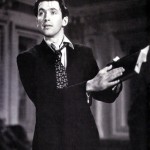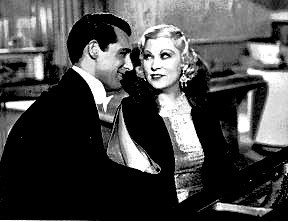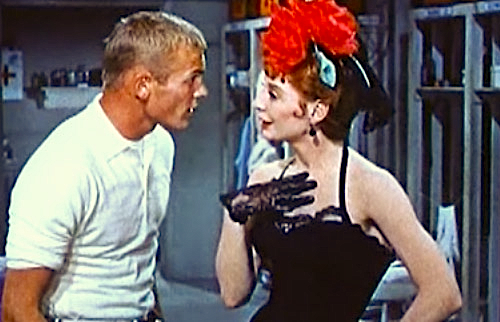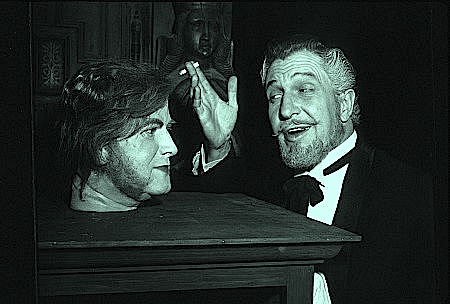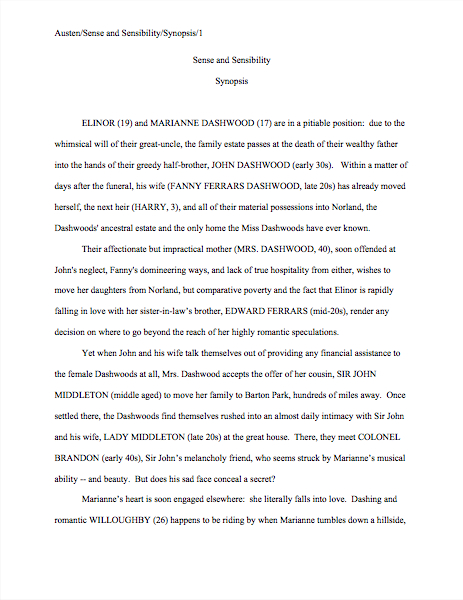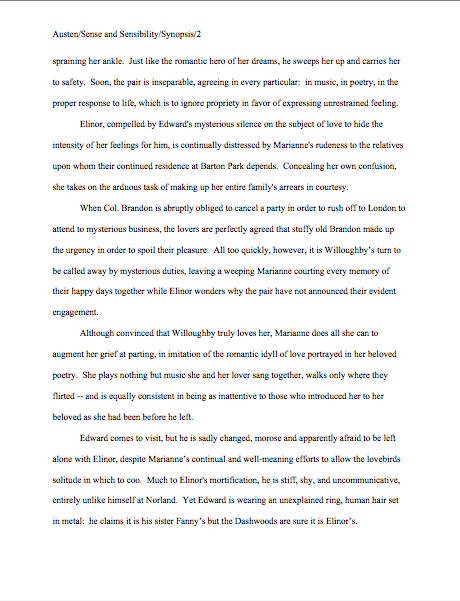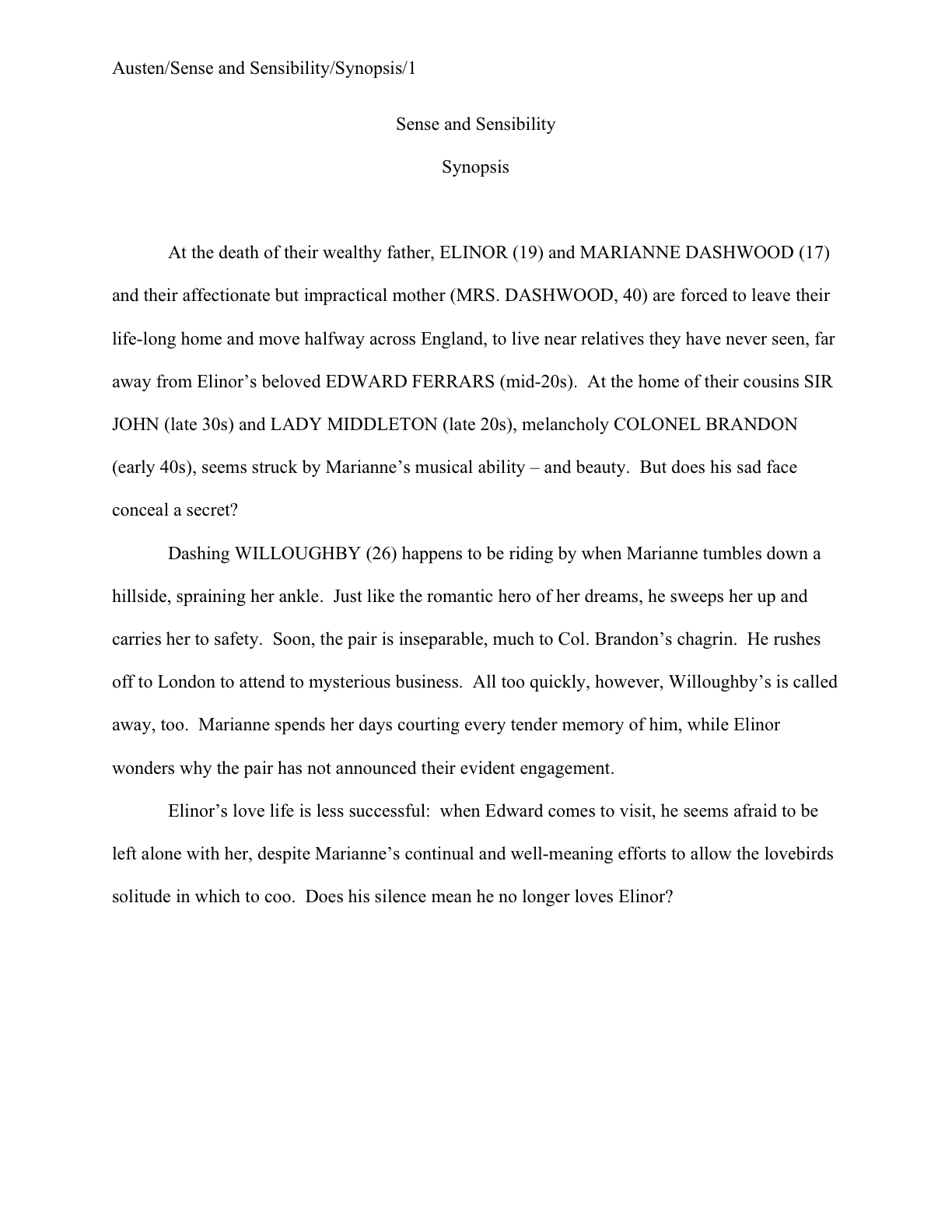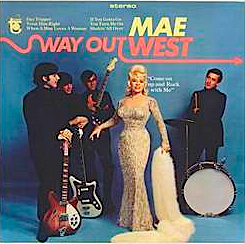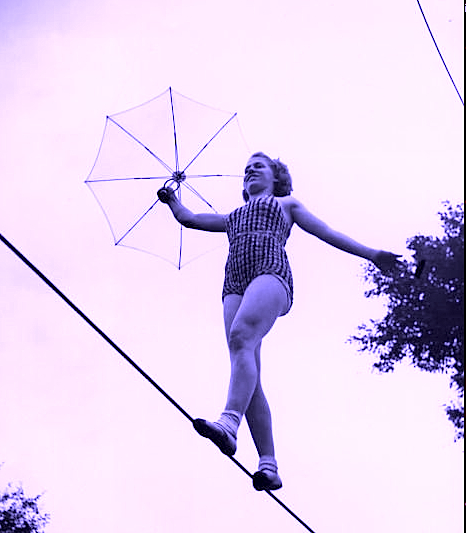Is it me, or did someone assume that the folks driving the delivery trucks needed just a tad more prompting about where to drop those packages than a reasonable person might in fact need? Wouldn’t everyone’s life have been a whole lot simpler if the manager of this facility just sprung to have a sign made that would blare LOOK — IF YOU HAVE A DELIVERY, COME DOWN THIS ROAD. EVERYONE ELSE SHOVE OFF or some similarly blunt and unambiguous statement?
You know me, folks — I’m a huge fan of clarity. (Oh, that didn’t occur to you during last January’s 23-part series on how to format a book manuscript? Next winter, it will be 24 parts — a reader asked a really good question in the archives.) I’m also, when it comes to hallway pitching, a big fan of writers’ being absolutely clear on where and when it is and is not appropriate to accost an agent in a hallway (or bar) at a writers’ conference, politely ask if s/he could spare thirty seconds, and give the shortened version of your pitch known as the elevator speech.
Where is particularly important. And not only because the single most frequently-expressed concern writers have about hallway pitching is appearing rude.
It’s not surprising that first-time pitchers tend to be worried about this — a hefty percentage of the information on conference pitching floating around out there consist of some form of there are agents and editors who just hate it when a writer comes up to them at a conference and pitches a book without an appointment. Therefore, all agents and editors must hate it. Even if a writer happens to find herself seated next to the agent of her dreams at a rubber chicken luncheon, under no circumstances should she even consider preparing a coherent answer to the friendly question, “So what do you write?”
I get that fear; honestly, I do. If you happen to have heard an agent say point-blank in an interview that he hates being buttonholed in hallways, by all means, do not buttonhole him in hallways. But to assume that all agents and editors share identical opinions on this subject is to fall into the same trap that aspiring writers so often do about querying and submission: it doesn’t take very many repetitions for a single agent’s personal preference, expressed on a conference dais or on a blog, to get magnified by that great game of Telephone we call the Internet into a dictum ostensibly crafted to be applicable to every pitching opportunity, anytime, anywhere: thou shalt not pitch at all outside a scheduled pitch meeting — and if the conference organizers schedule you for an appointment with someone who does not represent your kind of book, well, too bad. Better luck at next year’s expensive conference.
I’ve spoken at some length in this series about the vast difference between a polite, professional pitch — one that includes delightful and emollient phrases like, “Excuse me, may I disturb you for a moment?” “You mentioned at the agents’ forum that you represent books like mine, and I could not obtain an appointment with you,” and/or “Thank you very much for your time. I shall be going now.” — and the kind of rude, blustery pitch that most hallway pitch-haters have in mind when they express negative opinions about it. While it might be safe to draw a general conclusion about the inadvisability of being rude to any stranger one wants to approach to ask any favor, it seems like overkill (rather like the signage above) to swear off the possibility of making a connection with an agent who might love your work because some other agent got offended once. It just isn’t logical.
But it makes a whole lot more sense if one bears in mind the possibility that the original, “Ooh, I hate it when aspiring writers stop me in the hallway to pitch,” statement was part of a sentence that continued, “when I am trying to race to the bathroom,” does it not? And who could blame the agent — or indeed, any agent — for feeling that way?
I suspect, though, that the primary appeal of the surprisingly pervasive conference circuit truism against hallway pitching is not so much its underlying logic as its implicit permission — nay, admonition — for a would-be pitcher at a conference not muster the courage to walk up to that agent who is three feet away and ask politely to pitch. For the nervous, the ostensible ban on hallway pitching is a virtual Get Out of Pitching Free card, relieving them of the obligation to try to find an agent via a face-to-face approach.
Unfortunately, many literary contest winners and finalists regard their status (and the fact that at many conferences that give out such awards, winners and placers are singled out for public praise, always delightful) as a Get Out of Pitching Free card, too. They expect — wrongly, usually, but not without reason — that having done so well in the contest sponsored by the same organization that is throwing the conference, the agents and editors in attendance would seek them out, not the other way around. Or at least that the conference’s organizers would go out of their way to throw contest winners and agents who might snap ‘em up together in the same room.
I hate to be the one to break it to you, but this happens surprisingly seldom. Most of the time, contest winners and finalists are given no more pitching opportunities than other conference attendees, and it’s far from the norm that contest winners are automatically mobbed by agents. The latter are usually more receptive to winners and finalists, but by and large, it’s the writer’s responsibility to walk up and make that connection.
Which generally entails — wait for it — giving a hallway pitch.
I say this, incidentally, not just as the writers’ booster who often ends up holding contest-winners’ hands at the end of the conference as they say over and over again, “I can’t believe that no agent asked me to submit pages!” I also say this as a writer who has actually been in this position. When I won my first big award for my memoir, I was lucky: the president of the award-granting organization actually did corral yours truly and the winner of the main fiction award, lecture us on the importance of not wasting any or all of the pitching opportunities that the rest of the conference would afford, and herded us into a party with a couple of dozen agents.
We both pitched more or less non-stop for the rest of the conference. Fortunately, I had come prepared for it: several friends of mine had won similar contests, so I had been on the receiving end of many a pep talk. I walked out of it with more than a dozen requests for pages. As a direct result, I had the luxury of choosing between offers from several agents.
How many requests do you think I would have generated had I not pitched like a fiend? Ask the winners from subsequent years, the ones who did not heed the president’s pep talk. I’ve ended up holding their hands at the end of conferences, too.
I’m bringing this up not to gloat about my success, but because not all contest winners and finalists were as lucky as I was to know that it was my job, not the attending agents’, to take advantage of that first-place ribbon fluttering from my name tag. I’m hoping my experience will believe me when I tell you a basic truth of conference pitching: while the pitch you are bold enough to make might get rejected, the pitch you never work up nerve to give will certainly be rejected — by you.
Please, contest winners and finalists, do not remain passive here: although contest wins are undoubtedly excellent Eye-Catching Query Letter Candy (ECQLC), at no place or time will your having done so well in that contest be as easy to parlay into a conversation with an agent as when that agent has just seen you handed a ribbon. How might a savvy contest winner initiate such a conversation? How about like this: “Excuse me, but could you spare me a moment? I’ve just won Award X for my book, and you mentioned at the agents’ forum that you represent work in that book category. Would you be interested in hearing a quick pitch?”
I can already hear those of you whose entries did not do quite so well breathing a sigh of relief. “Okay, Anne,” the time-conscious cry, “that lets me out. Unless I just happen to fall into conversation with an agent — if, say, someone digs a large pit in the middle of a conference center’s hallway and we both tumble into it at the same time — probably won’t be pitching. But even assuming that I’m willing to prepare a pitch for that particular eventuality, I’m not going to memorize two different speeches. If the elevator speech is so effective at piquing interest, why shouldn’t I just use it as my pitch in my meetings with agents and editors? Since I’m already crunched for time to write, let alone to find an agent, why do I need to invest the time in preparing more than one conference pitch?”
The short answer: so you can be flexible. As I pointed out last time, you never know when — or where — you may end up pitching.
The long answer: let’s face it, it’s not as though simply memorizing a pitch, be it 3-sentence or 2-minute, is sufficient to prepare a writer for a meeting with an agent or editor who might be interested in the book. In fact, a pretty good argument could be made for not memorizing either, but reading one’s pitch from a handy piece of paper, index card, etc., to avoid the glassy-eyed, zombie-like delivery that regurgitation of memorized material.
Besides, as intrepid reader Dave likes to point out each time we discuss pitching (and bless you for it, Dave), a full-scale pitch is an interactive process, not a speech declaimed to an audience who can only clap or boo at the end. If an agent or editor likes your hallway or full pitch, she’s probably going to ask some questions.
Perhaps — and this comes as a substantial shock to most first-time pitchers — even DURING your pitch. Do you really want to be caught tongue-tied and unable to speak coherently about your book?
Stick your head between your knees until the dizziness induced by that last image passes. I’ll wait.
That’s why I’ve spent the last couple of weeks trying to nudge all of you away from the all-too-common notion of the three-line pitch, practiced over and over as if they were lines in a play. If you concentrate too much on the words themselves, and the short amount of time you have to say them, it’s too easy to freeze up when an unexpected question knocks you off script.
Call me zany, but in my experience, helping people learn to talk about their work professionally and comfortably in a broad variety of contexts works far better in practice than ordering people to write, memorize, and blurt a specific number of lines of text.
The rules lawyers out there aren’t satisfied with those excellent reasons, though, are they? “But Anne,” I hear some of you protest, “I can always add to my pitch on the fly, but I can hardly subtract from it. So why wouldn’t I be best off just preparing the 30-second version and using it no matter where I’m called upon to pitch?”
Okay, okay, I’ll admit it: a lot of people do use the 3-sentence elevator speech as their only pitch; to be fair, it has been known to work, just as hallway pitches work.
Just let me ask you a couple of questions: a 30-second pitch leaves quite a bit of a 10-minute appointment unused, doesn’t it? And why would you want to trade an opportunity to say MORE about your book for a format that forces you to say LESS?
I have another, more strategic reason for advising you to prepare both a short and a long pitch: not all conferences are equally open to hallway pitching. Especially, I’ve noticed, the ones that charge would-be pitchers per pitching appointment. Not too astonishing, I suppose.
Brace yourself, because I’m about to be subversive again: my experience has been that even at pay-for-pitch conferences, a brave writer can pretty much always buttonhole an agent or two after an agents’ forum or in the lunch line. It’s pretty difficult for conference-organizers to prevent any extra-appointment chance encounters between agents and the writers who came to the conference to pitch to them.
However, even at some conferences that don’t charge by the appointment, the organizers do try to discourage hallway pitching. I’ve seen many a conference brochure that featured rhetoric telling attendees that it is always rude to pitch outside a formal appointment, for example, or that forbade attendees to switch appointments after their assigned agents announced from a dais that they’re no longer accepting a particular kind of book.
Other conferences offer only a small handful of appointment times on a first-come, first-served basis, so late registrants are left with only the options of hallway pitching or not pitching at all. It’s also not at all uncommon for agents and editors to be whisked away to private parties or hospitality suites, so that they are seldom seen in the hallways for accosting purposes.
Seldom seen sober, at any rate (allegedly). Not much point in pitching to someone who thinks you’re just one of the dancing pink elephants.
Even when the rules and/or schedule do not discourage casual pitching, it can require significant bravery to place oneself at the right place at the right time. Even at fairly inclusive conferences, attendees often report feeling like comparative outcasts, unwelcome at the luncheon tables where the bigwigs hobnob. I’ve been to many a conference where the organizers and invited guests sat on one end of a banquet hall, and the paying attendees on the other.
Heck, I stopped by a conference (which shall remain nameless) a couple of years back where the visiting literati were whisked off their respective airplanes, driven immediately to a party at a local NYT bestselling author’s house for abundant merry-making, and then plied with alcohol so steadily throughout the course of the conference that the following Monday morning, one of the agents e-mailed me from New York to ask what had happened over the weekend. Rumor has it that some of the invited guests did not even show up for scheduled a.m. pitch meetings.
Which, I imagine, played some havoc with those pitchers whose assigned pitchees did not appear.
My point is, writers often pay a lot to attend these conferences, yet find themselves with relatively few pitching opportunities — and not always the ones they expected to have. Sometimes, a writer has to be pretty creative in order to snag those precious few moments for pitching, at least without coming across as obnoxious.
Which brings me to a perfectly marvelous question posted earlier in this series by insightful first-time commenter Penelope. So trenchant was it that I’ve been saving it to share with the entire class:
This is a wonderful post! I especially like the advice on what to do in the case that you’re paired with an agent who doesn’t represent your genre; which I had no idea could happen.
I do find one part of this post confusing, though. I have read on the internet (agent’s blogs, mostly) of how much agents despise being cornered and pitched to in places like elevators, hallways, bars, etc, yet you seem to be saying that this is okay. Is there a certain way to go about pitching in an elevator (for example) that would help an agent be more open to the pitch?
I find this question excellent — rather than passively accepting that what I’ve been advising is true, Penelope has thought it over, weighed advice from a variety of sources, and asked for clarification. This is a great strategy when dealing with anyone who has been immersed in the biz for a good, long while — as counter-intuitive as its ins and outs may be, once one gets used to them, their underlying logic can start to seem obvious, believe it or not.
Bear that in mind the next time you hear confusing pronouncements from the dais at a literary conference, please.
Back to the matter at hand: Penelope is quite right that there are some agents out there who hate, loathe, and detest aspiring writers asking to pitch outside scheduled appointments. Perhaps because they’ve never been in the position of a writer assigned to meet with an inappropriate match, these agents don’t believe that a polite writer would ever accost them in a hallway.
Fortunately, the relative few who feel this way — and they are few, at least amongst agents who habitually go to writers’ conferences — tend to be quite vocal about it. They post it on their websites; they announce it from the conference dais; they write articles and give interviews about it.
Thus, they have good reason to be insulted if an aspiring writer walks up to them and just starts pitching: they could hardly have made their preferences clearer. Approaching them on the fly, then, is every bit as likely to offend as picking up the phone and cold-calling an agent instead of sending a query letter. Or querying an agency that states on its website or in the standard agency guides that it is not currently accepting queries. The result of ignoring these stated preferences will be the same: instant rejection.
So here is my advice: do not, under any circumstances, attempt to pitch informally to an agent who has ever stated publicly that s/he abhors it.
How can a writer new to the biz avoid this faux pas, you ask? At the risk of repeating myself, do your homework. Performing a simple Google search on each attending agent before you head off to the conference should turn up any statements on the subject. If not, listen closely to what the various agents have to say at the agents’ forum.
Chances are, though, that you won’t turn up too many hallway-haters; it’s a common enough practice that folks who are seriously turned off by it tend to avoid the conference experience altogether. (Hey, it’s stressful for the pitch-hearers, too — listening to that many people’s hopes and dreams is mighty tiring.) After all, agents go to conferences in order to pick up clients, and it honestly is a waste of everyone’s time if they only hear pitches from the 10 writers who happen to be assigned formal appointments with them, if there are 75 writers there who write what they’re looking to represent.
Especially if 5 of those appointments turn out to be mismatches, where writers are pitching types of books that they do not represent.
If a writer’s polite about approaching, it’s usually fine. That’s a big if, though — unfortunately, there are PLENTY of rude aspiring writers up there who will simply walk up to an agent they’ve never met before and start launching into a pitch, without so much as a “Hello” or “Could you spare me thirty seconds to tell you about my book?”
Typically, when agents complain about informal pitches, that’s the kind they’re talking about, by the way, not the nice folks who approach them respectfully. You can’t really blame them for resenting the rude approach: anyone would despise being accosted right after he had just swallowed a mouthful of pasta or as she was unlocking the door to her hotel room.
Yes, it happens — but I cling firmly to the belief that none of my lovely readers would be that obnoxious.
Use your common sense, be polite at all times, and be prepared for the possibility that any given agent may have a personal pet peeve about being disturbed in some specific locale. As far as I have been able to tell in a couple of decades of going to writers’ conferences, the only UNIVERSALLY agreed-upon do-not-pitch zone is the bathroom. Other than that, whether the smoking area or the make-up mirror in the ladies’ lounge is off-limits honestly is a personal preference.
Hey, not everyone considers that part of the bathroom per se. I would err on the side of caution and avoid pitching at all between the WOMEN’S sign and the stalls, but hey, that’s me.
The trick to approaching gently lies in both timing and courtesy. If an agent is lying prone on a hallway bench with a wet towel over her face, clutching her head and moaning about a migraine, that might not be the best time to try to catch her eye, for instance. Nor is the moment just after she walks out of the room where she has been listening to pitches all day, or when she is deep in conversation with an author she hasn’t seen in 25 years.
Remember, she is under no obligation to agree to hear you out. Listening to an informal pitch is a favor, and should be treated as such.
So don’t, for instance, walk up to an agent who is laughing with her friends, tap her on the shoulder, and start talking about your book. Instead, walk up to the dais after she’s given a talk, wait politely until it’s your turn, and say something along the lines of:
“Excuse me, but I was enthralled by how you talked about your clients. I couldn’t get a pitch appointment with you, but I think you may be interested in my book. May I give you my thirty-second pitch? Or if now is not a good time, could we set up an appointment later?”
Hard to find that offensive. It clearly gives the agent the opportunity to say no, but still makes it flatteringly plain that you are taking her time seriously. Works in an elevator, too, as long as the would-be pitcher remembers that no really does mean no.
And no, in response to what some timorous souls out there just thought very loudly indeed, none of this is particularly pushy; it’s being smart about promoting your work. By preparing to be able to speak about your book in a variety of contexts, social and official both, you can be ready to take advantage of that chance meeting with the agent with whom you found it impossible to make a formal appointment.
In, say, an elevator.
The other way a hallway pitcher can avoid seeming rude is to keep the hallway pitch BRIEF. If you ask for 30 seconds of the agent’s time, do not take up more unless he asks follow-up questions.
I’m quite serious about this: don’t go overboard. This is not the appropriate time to give your full-fledged 2-minute pitch; save that for a scheduled pitch meeting or, if you’re lucky, the appointment the agent you caught in the hallway agreed to give you later in the conference.
This is where the formula we discussed last time will save your bacon:
MAGIC FIRST 100 WORDS + ELEVATOR SPEECH = HALLWAY PITCH.
If you follow this prescription (oh, there I go again; the book doctor is apparently in), you should not go over the promised 30 seconds. That means that you won’t have to keep checking your watch while you’re talking.
See why I’ve been so adamant about urging you to prepare an elevator speech in advance? An audience granted at the last minute is no time to wing it.
Out come the broken record and the dead horse again: by emphasizing the 3-sentence pitch to the exclusion of all others, I think the standard sources of writerly advice have left first-time pitchers ill-prepared to address those other vital issues involved in a good pitch, such as where the book will sit in Barnes & Noble, who the author thinks will read it, why the target market will find it compelling…
In short, all of the information contained in the magic first 100 words.
All that being said, if an agent has stated publicly (on an agent’s panel, for instance) that he hates informal pitches, steer clear — but don’t necessarily write that agent off as a possibility. Instead, send a query letter after the conference, beginning, “I enjoyed your talk at Conference X, and since I was not lucky enough to obtain a pitch appointment with you…”
But whatever you do, don’t swear off hallway pitching just because a few agents dislike being pitched informally. Not everything every agent says is applicable to all agents — nor do the agents who make such pronouncements necessarily expect everything they say in public on the subject to become codified as The Law Eternal.
Sometimes, a personal preference is just that: personal. By preparing yourself to talk about your work in a variety of contexts, you will be substantially less likely to be caught with nothing coherent to say when the pitching opportunity of your dreams presents itself.
Trust me, you will be happier in the long run if you don’t self-reject your pitch. Try it on the agent of your dreams; the results might be spectacular.
Oh, I’m sensing some impatient seat-shifting out there again, amn’t I? “I get it, Anne,” some of you say, rolling your eyes, “you believe that I’ll be happier in the long run if I prepare to be able to give my pitch in a house, with a mouse, in a hat, near a rat, and anywhere else that an agent with a successful track record selling books in my category happens to be. Fine — I’m going to practice my elevator speech AND my pitch. But I’m hardly going to forget my own name or the title of my book. I do have social skills — I don’t seriously need to practice introducing myself, do I?”
I’m sure that you have social skills that are the pride and joy or your mother under normal circumstances, but hear me out, please: while it may seem a tad silly to have to practice saying your own name, or to remind yourself to mention that your book is a novel (or a memoir, or a nonfiction book), most writers are nervous when they pitch.
I know; shocking.
Practice will help you remember to hit the important points, no matter how brief or how strange the locale of your pitching experience. Especially if you practice saying them in a number of different ways.
Yes, you did extrapolate correctly: I am seriously suggesting that you do dry runs where you have only a minute, only thirty seconds, five minutes, etc., in order to get comfortable talking about your work. And I’m not just saying that because I once found myself stuck in the same tiny airport with a very famous agent for five hours, waiting for the same flight.
True story. Nice guy.
But surprise openings are not the only reason practicing rolling with the punches is a good idea. You’d be amazed (at least I hope you would) at how many first-time pitchers come dashing into their scheduled pitch appointments, so fixated on blurting those pre-ordained three sentences that they forget to:
(a) introduce themselves to the agent or editor, like civilized beings,
(b) mention whether the book is fiction or nonfiction,
(c) indicate whether the book has a title, or
(d) all of the above.
I find this sad: these are intelligent people, for the most part, but their too-rigid advance preparation has left them as tongue-tied and awkward as wallflowers at a junior high school dance.
We’ve all been there, right?
And don’t even get me started on the sweat-soaked silence that can ensue after the 3-sentence pitcher has gasped it all out, incontinently, and has no more to say. In that dreadful lull, the agent sits there, blinking so slowly that the pitcher is tempted to take a surreptitious peek at his watch, to make sure that time actually is moving forward at a normal clip, or stick a pin in the agent, to double-check that she isn’t some sort of emotionless android with its battery pack on the fritz.
“And?” the automaton says impatiently after approximately 150 years of silence. “Are you done?”
Call me unorthodox, but I don’t think this is a desirable outcome for you.
But that doesn’t mean that you should just prepare a hallway pitch and trust your luck to be able to handle questions about it for the rest of your pitch appointment. You will be happier in that meeting if you have prepared at least the outline of a 2-minute pitch. (And yes, Virginia, we are going to talk about that next time.)
And, by the way, you should time it as you say it out loud, to make sure it can be said in under two minutes without leaving you so breathless that oxygen will have to be administered immediately afterward.
Why? Well, even more common than pitchers who dry up after 45 seconds are writers who talk on and on about their books in their pitch meetings so long that the agent or editor hasn’t time to ask follow-up questions. You really do want to keep your pitch to roughly two minutes (as opposed to your hallway pitch, which should be approximately 30 seconds), so that you can discuss your work with the well-connected, well-informed industry insider in front of you.
A pitch meeting is a conversation, after all, not a stump speech: you want it to start an interesting exchange, not to engender stony silence, right? Come prepared to talk about your work — and in terms that will make sense to everyone in the industry.
In a box, with a fox — or balanced in a crabapple tree with a dirt-encrusted good luck charm. (I thought I wouldn’t make you guess that time.)
Trust me, you can do this. I have faith in you.
Okay, now we’re coming up on the main course: the two-minute pitch. But that, my friends, is a subject for another day.
Thanks for the fabulous questions, Penelope and the rest of you who contacted me privately. (You’d be amazed at how often the floating voices I cite here are the result of ex parte approaches; just for the record, I vastly prefer that questions be posted as comments on the blog, so everyone may benefit from the answers.) Keep up the good work!



 As of this moment, you have my permission to get into an elevator with an agent or editor without pitching, if you so desire. Live long and prosper.
As of this moment, you have my permission to get into an elevator with an agent or editor without pitching, if you so desire. Live long and prosper. I hereby solemnly swear that I shall not have learned the magic first hundred words and elevator speech in vain. The next time I attend a writers’ conference, I will pitch to at least three agents or editors with whom I do not have a previously-scheduled appointment.
I hereby solemnly swear that I shall not have learned the magic first hundred words and elevator speech in vain. The next time I attend a writers’ conference, I will pitch to at least three agents or editors with whom I do not have a previously-scheduled appointment. MAGIC FIRST 100 WORDS + ELEVATOR SPEECH = HALLWAY PITCH.
MAGIC FIRST 100 WORDS + ELEVATOR SPEECH = HALLWAY PITCH.
